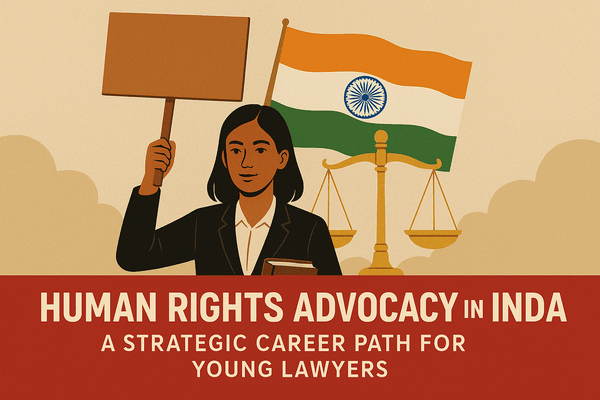In a society where the notion of family honour frequently overshadows personal liberty, couples who choose to marry or cohabit without familial approval often face threats, coercion, and social stigma. This article outlines the legal remedies available to such individuals, particularly those navigating the delicate age bracket of 19 to 21 years, and addresses the options when consent is later withdrawn under pressure.
Minimum Legal Age for Marriage in India
- Male: 21 years
- Female: 18 years
(As per the Prohibition of Child Marriage Act, 2006)
Notably, the Hon’ble Supreme Court in Hardev Singh v. Harpreet Kaur & Others, (2020) 19 SCC 504, clarified that a marriage involving a male under the age of 21 is not void and does not amount to a criminal offence, provided that the female is a consenting adult and the marriage was solemnised voluntarily.
If Both Parties Are Adults and Have Married or Eloped
- Preserve Documentation of the Marriage and Execute a Mutual Consent Affidavit
A marriage certificate and a duly notarised affidavit affirming mutual consent may serve as critical legal evidence, especially in cases where formal registration is not immediately feasible. - Approach the High Court for Protective Relief
Article 21 of the Constitution protects the right to life and personal liberty. High Courts have repeatedly upheld this right in landmark cases such as Lata Singh v. State of U.P. (2006) and Nandakumar v. State of Kerala (2018), directing authorities to ensure the safety of consenting couples. - File a Complaint if Threatened or Harassed
Under the Bharatiya Nyaya Sanhita, 2023:- Section 73 – Criminal intimidation
- Section 125 – Voluntarily causing grievous hurt
- Section 138 – Abduction or wrongful confinement under false pretexts
When the Male Partner is 19 and the Female is 21
Although statutory law prescribes 21 as the minimum age for males to marry, the Supreme Court in Hardev Singh v. Harpreet Kaur (2020) recognised such a marriage as valid, provided mutual consent exists and the female partner is a legal adult. While the union may not qualify for registration under the Special Marriage Act immediately, it does not attract criminal liability. The adult female retains the right to seek protection from the court under Article 21.
If the Female Partner Withdraws Consent Under Pressure or a False Complaint is Lodged
- Risk of False Accusations
Under the BNS:- Section 64 – Sexual harassment
- Section 63 – Rape
- Section 138 – Abduction or coercion
- Defensive Measures for the Male Partner
- Retain electronic communications, including messages, call logs, photographs, and travel evidence.
- Ensure the existence of a mutual consent affidavit signed at or around the time of cohabitation or marriage.
- Apply for anticipatory bail or petition for quashing of the FIR in the appropriate High Court.
The Delhi High Court in Sandeep Kumar v. State (2021) ruled that an adult female’s voluntary consent to cohabit or elope negates the applicability of rape charges.
Essential Components of a Protection Petition
- Affirmation that both parties are consenting adults
- Statement confirming cohabitation or marriage by mutual agreement
- Details of threats or coercion from family or third parties
Required Documents to Accompany the Petition
- Government-issued identification (e.g., Aadhar)
- Marriage certificate or equivalent photographic evidence
- Records of threats (call logs, messages)
- Mutual consent affidavit
Legal Protection for Live-In Relationships
The Supreme Court, in Nandakumar v. State of Kerala (2018), held that two consenting adults have the constitutional right to live together, even in the absence of a valid marriage.
Avoiding Legal Pitfalls
- Do not assume a marriage is void simply because the male partner is under 21; Hardev Singh clarifies its validity.
- Secure written consent and documentary evidence.
- Avoid confrontational behaviour with families opposed to the union; instead, seek judicial and police assistance.
Conclusion
Choosing a life partner is a fundamental right safeguarded under Article 21 of the Constitution. The Indian judiciary has consistently protected couples acting with mutual consent, even when societal norms are challenged. Legal recourse is available through the courts to uphold this autonomy.
If you or someone you know is facing familial threats or false legal action due to an inter-personal relationship, seek legal advice promptly and consider filing for protection.





Leave a Reply